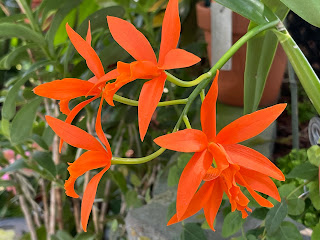Being Mindful with Midterms
We are now approaching the dreaded midterm season. 😬 This is the time during the semester when a lot of classes have major assignments like papers, midterm exams, or projects due. And, while this is always a stressful time for students and faculty, this year will probably feel more intense without a scheduled Spring Break and with a pandemic to still deal with. So, what can we do to get through this?
In the last few weeks, you’ve gotten tips on how to be mindful. These same tools (along with several others) can help us all survive the next few stressful weeks. First, let’s talk about what it means to be mindful. Mindfulness is simply defined as bringing one’s attention to the present moment in a non-judgmental way (Kabat-Zinn, 2016). This notion has been around for centuries; however, only recently has science decided to take a closer look at the practice of mindfulness. This includes a number of studies showing that mindfulness can be helpful in reducing perceived stress, anxiety, and depression, all of which can be exacerbated by the busy holiday season (Cordon, Brown, & Gibson, 2009; Goldin & Gross, 2010; Lengacher et al., 2014; Song & Lindquist, 2015). If you’re intimidated by all of this, don’t be. Being mindful is really quite simple.
Being mindful doesn’t have to be anything overly formal or done in a specific pose. It can be as easy as taking a few moments to fully listen and appreciate your favorite song on the radio. It can be taking a few deep breaths and taking the time to appreciate the smell of your morning cup of coffee or cocoa. Or even taking 10 minutes to go outside, breathe in the crisp air, and focus on nothing but the coolness and nature around you. Taking even a moment or two here and there can add up. So, whether you follow a formal seated practice 20 minutes a day or simply take a few moments here and there, it is still the same. And, mindfulness doesn’t even have to be still. Yoga is a way of making your meditation an active meditation since it requires you to focus solely on what is on your mat and your own experience.
So, this week I encourage everyone to try to incorporate mindfulness into their week in a simple way. Find something that you enjoy, and just spend a minute focusing on that. Notice how you feel and the details around you. If you find your attention wavering, just take a breath and refocus back on the task at hand and the current experience. It’s not about being perfectly attuned to what’s going on; it’s about noticing your attention has wondered, simply acknowledging that, and bringing your awareness back to your focal point.
Have a great week!
-Dr. M
References:
Cordon, S. L., Brown, K. W., & Gibson, P. R. (2009). The Role of Mindfulness-Based Stress Reduction on Perceived Stress: Preliminary Evidence for the Moderating Role of Attachment Style. Journal of Cognitive Psychotherapy, 23(3), 258-269. doi:10.1891/0889-8391.23.3.258
Goldin, P. R., & Gross, J. J. (2010). Effects of mindfulness-based stress reduction (MBSR) on emotion regulation in social anxiety disorder. Emotion, 10(1), 83-91. doi:10.1037/a0018441
Kabat-Zinn, J. (2016). 'This is not McMindfulness'. Psychologist, 29(2), 124-125
Lengacher, C., Shelton, M., Reich, R., Barta, M., Johnson-Mallard, V., Moscoso, M., & ... Kip, K. (2014). Mindfulness based stress reduction (MBSR(BC)) in breast cancer: evaluating fear of recurrence (FOR) as a mediator of psychological and physical symptoms in a randomized control trial (RCT). Journal of Behavioral Medicine, 37(2), 185-195. doi:10.1007/s10865-012-9473-6
Song, Y., & Lindquist, R. (2015). Effects of mindfulness-based stress reduction on depression, anxiety, stress and mindfulness in Korean nursing students. Nurse Education Today, 3586-90. doi:10.1016/j.nedt.2014.06.010



Comments
Post a Comment